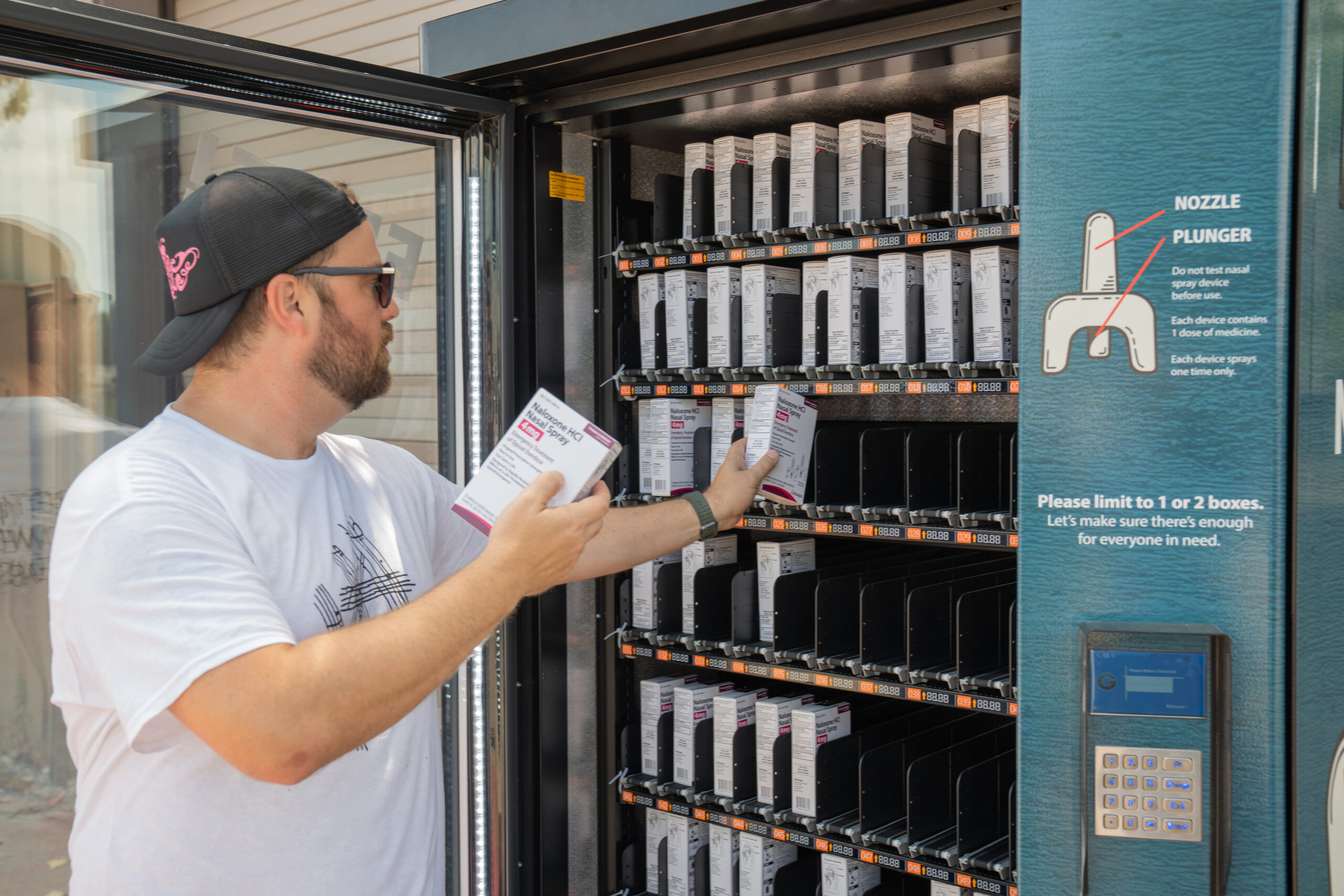DENTON, Texas — According to Texas Health and Human Services (HHS), the state is experiencing a drug poisoning epidemic. Included in that epidemic is a rising number of opioid overdoses. One such incident inspired a novel solution.
Chad Wither, general manager of Rubber Gloves Rehearsal Studios, a Denton nightclub, recalls a scary situation with an 18-year-old who was overdosing on opiates.
“I had a Narcan right there,” Wither said. “Pulled it, gave it to them, and they went over and administered it, and that person was, looked like, essentially brought back to life.”
The experience inspired him to put a free naloxone machine outside the club. Also known by its brand name Narcan, the nasal spray can reverse the effects of an opioid overdose.
Though it looks like a typical vending machine, this one has the potential to save lives. Just as with a standard vending machine, Narcan is dispensed by punching in a code and collecting the spray from the tray. In this case, no payment is required.
It’s the first Narcan machine issued through the statewide initiative Be Well Texas and its public health program Naloxone Texas. And it already seems to be working.
“We’ve already had to restock it twice. We’ve only had it a week so far,” Wither said.
Dr. Tara Karns-Wright directs the program throughthe University of Texas Health Science Center at San Antonio.
“We are really trying to address the opioid crisis by providing tools on the ground that will help to address things like overdoses,” Karns-Wright said.
And — though the Centers for Disease Control and Prevention data shows opioid overdose deaths were down 27% nationwide from over 83,000 to roughly 55,000 in 2024 — a state health services program called Texas Overdose Data to Action reports drug poisoning deaths including opioid overdoses have increased over 75% in the last five years in Texas.
Karns-Wright says free Narcan machines provided through state funding are part of the solution. They plan to place 112 machines around the state.
“The other really potential solutions are prevention and treatment,” she said. “And so one of the things we try to do at Naloxone Texas is link to treatment if we can.”
